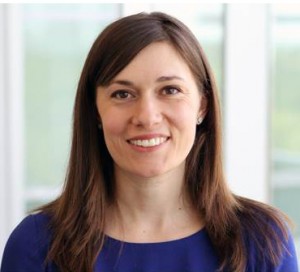Dreyer Professorship in Epidemiology
May 5, 2016
We recently talked with Nancy Dreyer, PhD, Global Chief of Scientific Affairs and Senior Vice President for Real-World and Late-Phase Research at Quintiles. Dreyer, a Gillings School of Global Public Health alumna who earned master’s and doctoral degrees at the School, is also an adjunct professor in epidemiology.
In 2015, she established The Nancy A. Dreyer Distinguished Professorship Fund. Distributions from the fund will support an endowed chair to attract or retain a distinguished teacher and scholar in epidemiology.
Gillings School (GS): What led you to establish a professorship in epidemiology at the UNC Gillings School?
Nancy Dreyer (ND): I was fortunate to receive a great education in a fascinating field. My training at UNC has enabled me to engage in a broad spectrum of applied research activities, including studying the health effects of environmental contamination from ionizing radiation in Bikini Atoll, mobile phone use, and residential proximity to electric power lines. I’ve also studied injuries resulting from participation in professional football and basketball.
I had no idea that any of that research was ahead of me when I did my epidemiology training, but the skills I learned at UNC allowed me to pursue these various activities and make contributions to improving health.
GS: As you carved out your career path, what role did mentorship play? Who were your mentors, and what did you learn from them that you still carry with you?
ND: I have been very lucky. I’ve had a series of mentors who stimulated my creativity, urged me to aim higher and helped me learn basic principles of good business practice and good science. Many of my mentors were professors who were also superb teachers. Some of the things they taught me still resonate, such as, ‘Do the right thing, even though it may not be easy,’ ‘Don’t take shortcuts,’ and ‘Put yourself in the other person’s shoes; consider a resolution that solves both their needs and yours.’
GS: What advice would you give students at the Gillings School and young professionals who are beginning their careers?
ND: You don’t know where your career will take you, so keep an open mind to learning things that may not appear to be useful immediately. Pay attention to the lessons and to the teachers. Then, look beyond school and see how applied epidemiology is practiced elsewhere, including in industry and research-focused companies such as Quintiles.
Christina Mack, two-time Gillings School alumnus (MSPH, 2010; PhD, 2013), first met Nancy Dreyer in 2006 when Mack was a project manager at Outcome Sciences on Dreyer’s study of avian influenza. Although she had never considered a career in epidemiology, Mack was inspired by Dreyer and the science she was leading. Since then, Mack says, “I’ve never looked back.”
Nancy has mentored me in several areas. She has shown me how to be effective in science and business, how to build and lead a team, and that it is important and okay to have both a strong professional career and a great family life. Her advice has been useful time and again, and will stick with me throughout my career.
At Quintiles, Nancy’s leadership has given me continuing on-the-job-education. She brings an innovative and practical approach to science, teaching her mentees to think clearly about what is meaningful and how results are best communicated. Her input on research spans many levels, from high-level thinking to technical details and client management.
On a personal note, Nancy has coached me through some important decisions, including pursuing a degree in epidemiology at the Gillings School, and deciding where to focus my career along the way. She has been a role model and mentor whose support is constant.
—Christina Mack, PhD, Director, Epidemiology and Health Outcomes, Quintiles
Carolina Public Health is a publication of the University of North Carolina at Chapel Hill Gillings School of Global Public Health. To view previous issues, please visit sph.unc.edu/cph.

